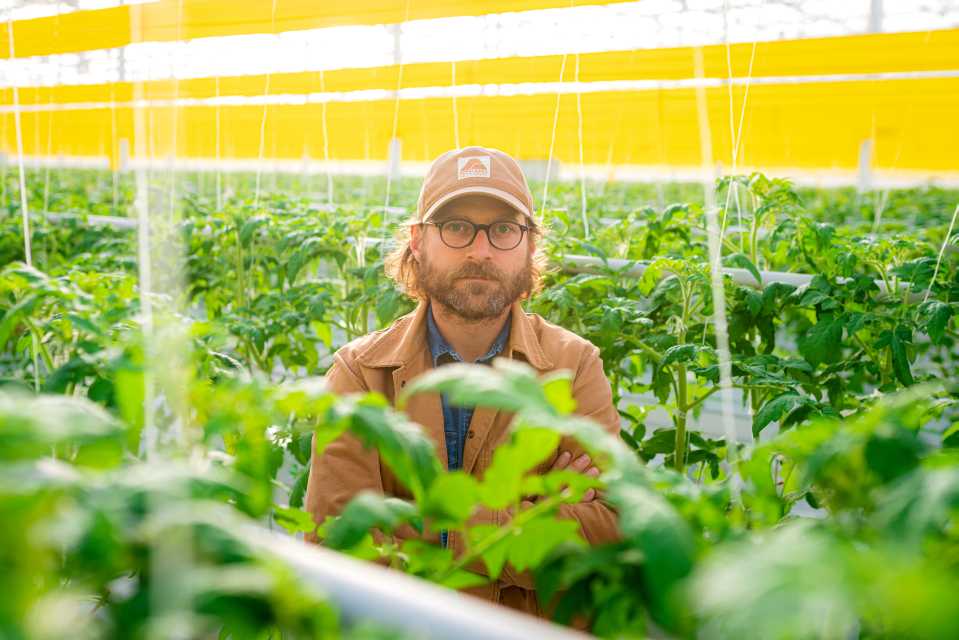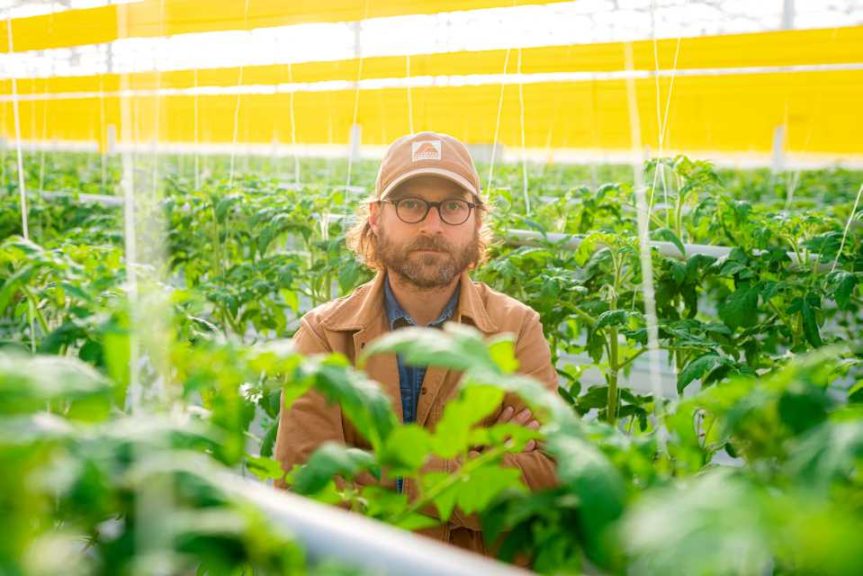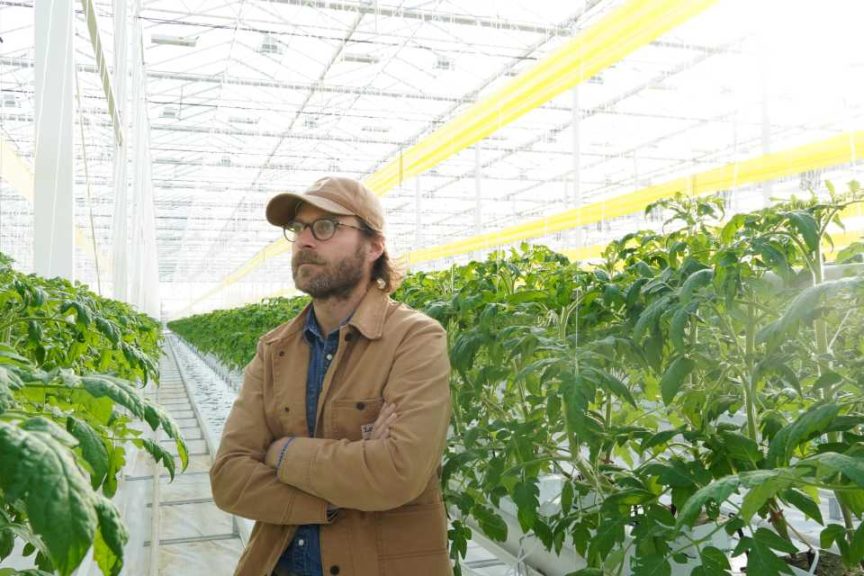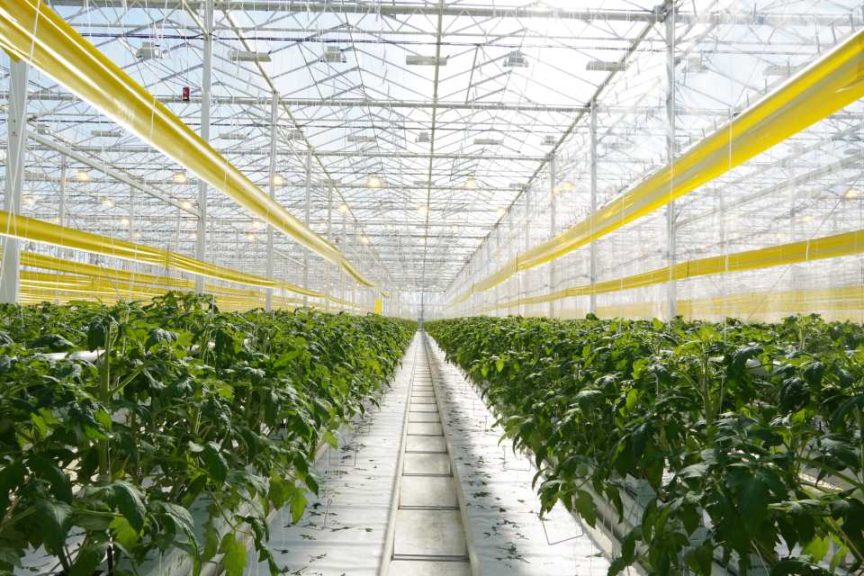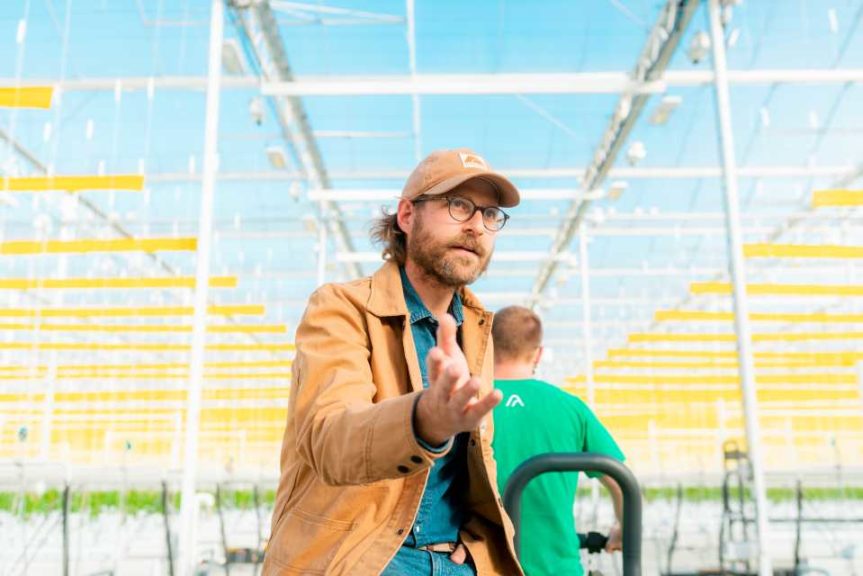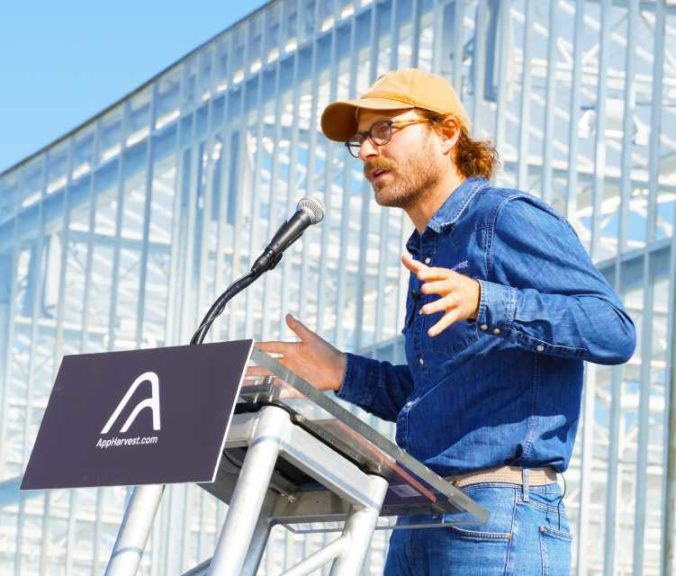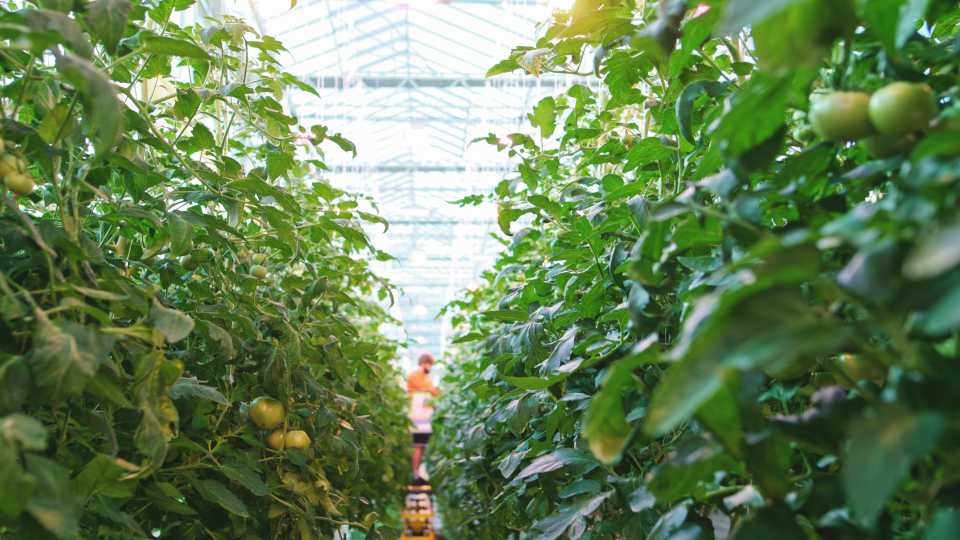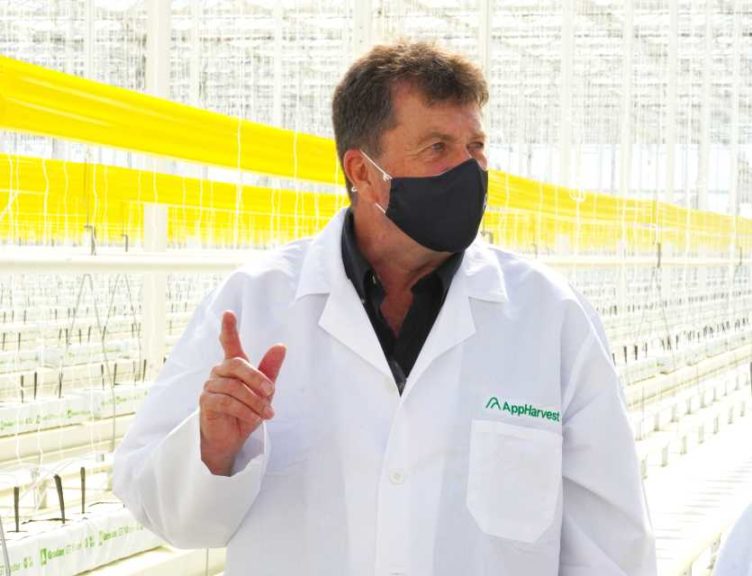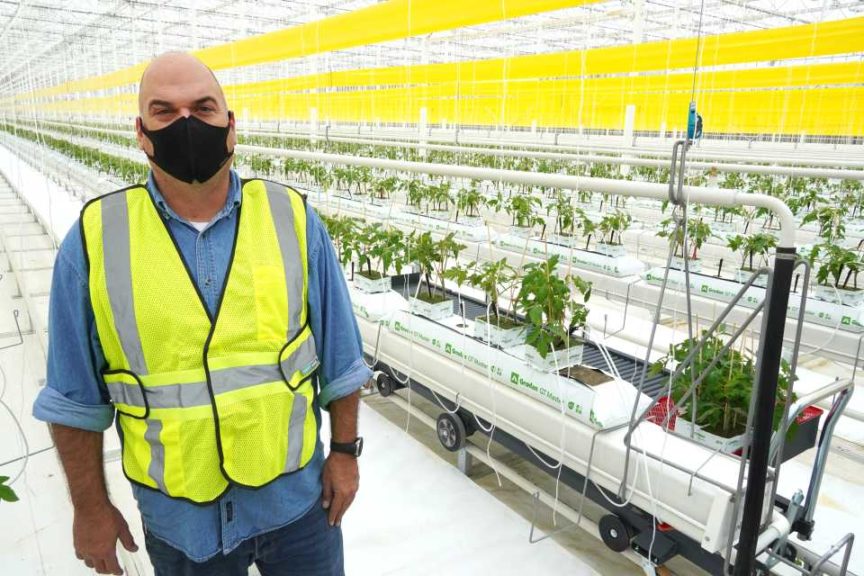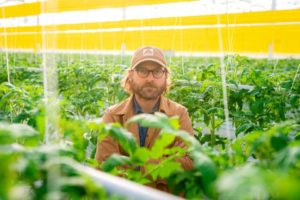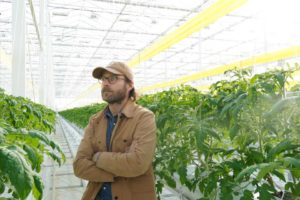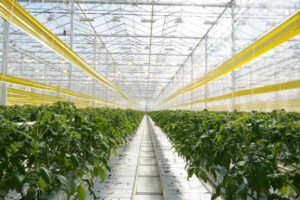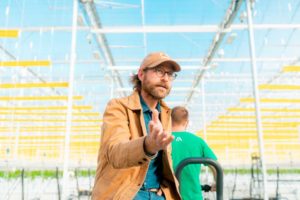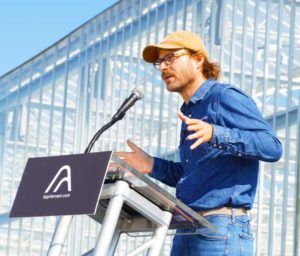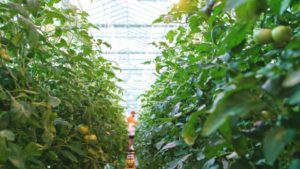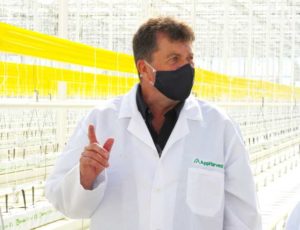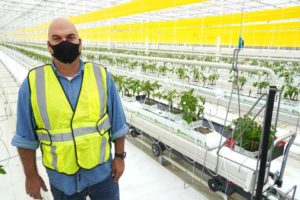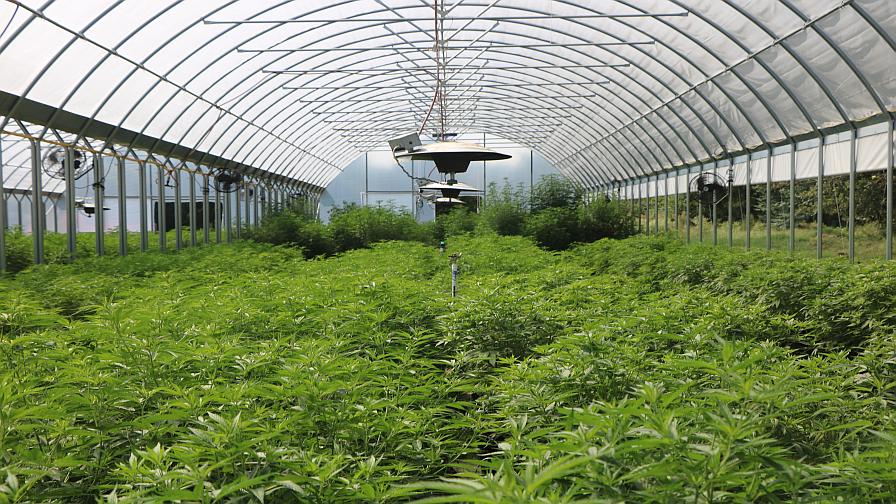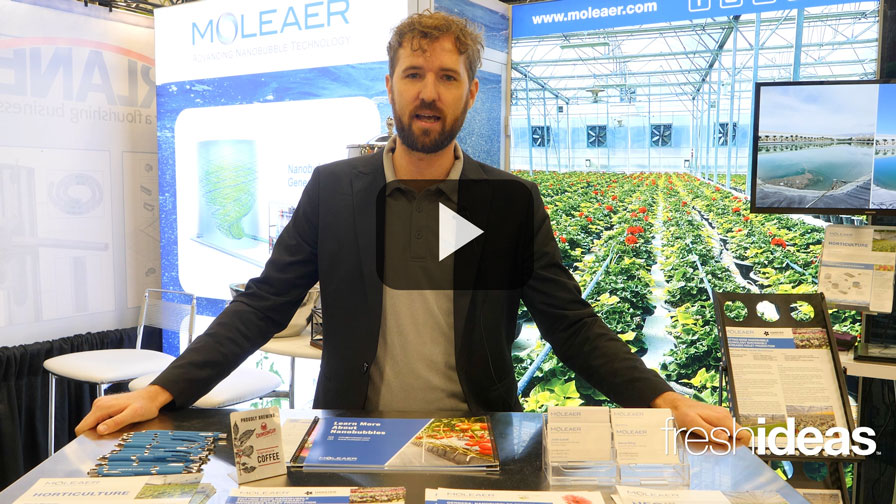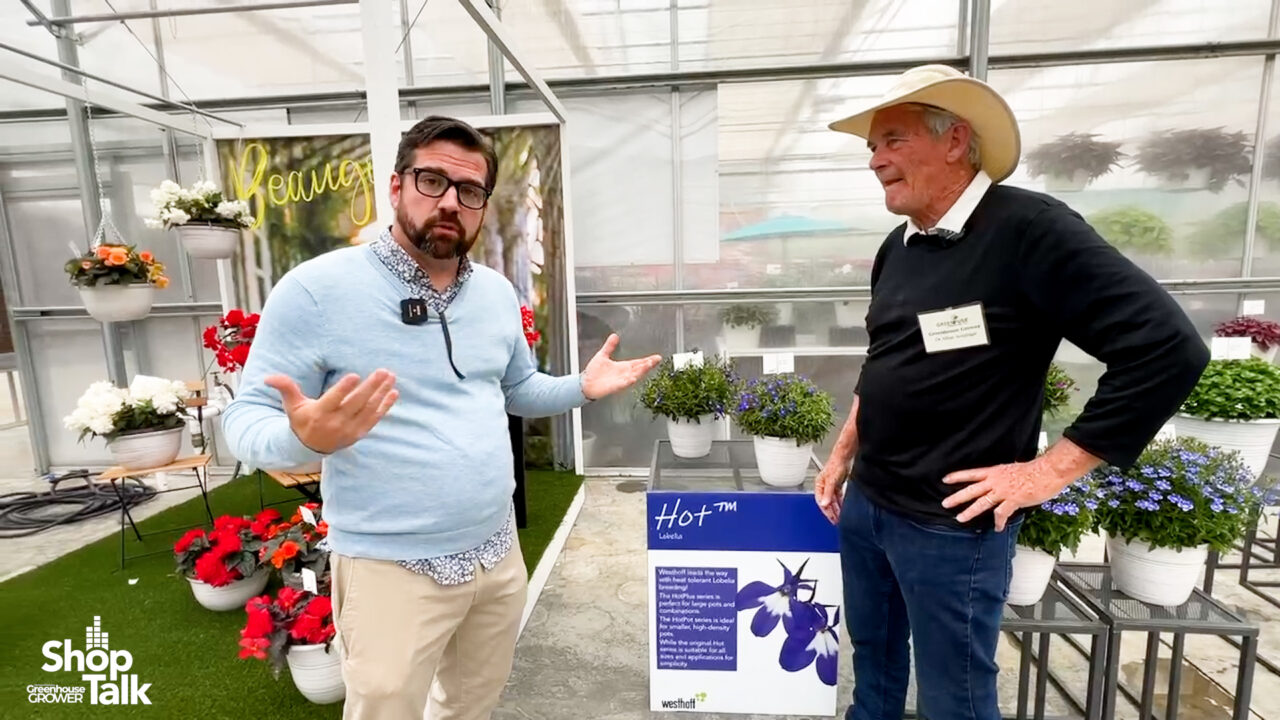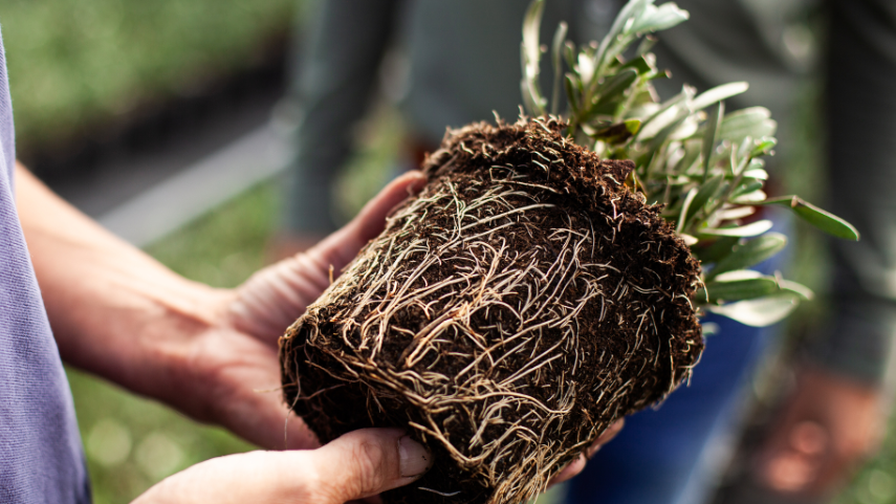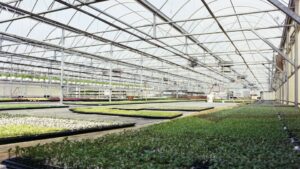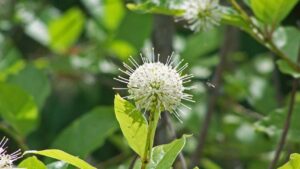How AppHarvest Built Its Own Roadmap to Success
Starting a new company from (literally) the ground up takes many things, including patience, perseverance, and a commitment to overcoming adversity. Perhaps most of all, it takes vision.
Thankfully, you can find all of those traits in Jonathan Webb, the founder and CEO of AppHarvest, a greenhouse vegetable operation in the heart of Appalachia that harvested its first crop of tomatoes in January 2021. Webb launched AppHarvest just a couple years ago with two guiding principles that might be considered unique. First, he wanted AppHarvest to be both a large-scale growing operation and a local company in terms of its ability to quickly deliver a fresh crop and in its strong connection to the community. Second, he saw AppHarvest not as a produce grower, but as an applied technology company that could integrate a wide range of systems for the common purpose of providing a much-needed resource: fresh fruits and vegetables.
Here’s how he did it.
An Applied Technology Company
Webb grew up in Kentucky, but spent most of his early professional years living in Washington, DC, working in the solar industry.
“What many people don’t realize is that solar and wind power have been around since the 1980s, but they didn’t really take off until a few years ago, when the technology got to a point where you could produce this type of energy at a cost-effective rate,” Webb says.
The same thing is now happening in controlled-environment agriculture technology, Webb says. Whether it’s lighting, facility design, or environmental controls, the industry is reaching an inflection point where the cost of technology is coming down as its efficiency goes up. When you can truly use infrastructure and technology to align with nature and agriculture, Webb says, you’ve reached that point.
At the same time, during his many conversations on Capitol Hill with lawmakers, the discussion would veer from energy to food production.
“I overheard comments about food imports skyrocketing and specialty crop production shifting outside the U.S.,” Webb says. “This is why we started the company. Our initial plan was that we would be an applied technology company that would use proven technology and build an infrastructure in a region where we can access markets quickly and bring production back to U.S. using less land, water, and chemicals.”
Partnerships Prove Powerful
Once Webb and his team made the decision to start AppHarvest, the next step was determining the type of facility.
“We first looked at pure indoor growing in a warehouse, but we couldn’t wrap our head around it,” Webb says. “The Earth gives you two free inputs (rainwater and sunlight), and to take them out of the mix and think you’ll be more sustainable just didn’t make sense. So we went with the glass-structure model, and looked at how we could use the technology inside to grow effectively.”
One thing that helped was Webb’s previously established ties to the Dutch government and technology developers at both the commercial and university level. His team toured the Netherlands, with the goal of finding and designing a system that could be competitive and profitable from day one.
In another example of inspired timing, Webb met with then Secretary of Agriculture Sonny Perdue to discuss the possibility of a state/federal partnership on agriculture development in the Appalachia region. Shortly thereafter, Perdue made his own trip to the Netherlands, where he saw first-hand what was possible when government, commercial, and industry stakeholders were able to come together.
“The potential for knowledge transfer is incredible, and it also helps you develop proper messaging for your industry, which can be a challenge in this market,” Webb says.
The Path to Success
Of course, knowledge of producing and harvesting a high-quality crop is critical, which is why Webb sought to recruit growing experts from around the world. Once that team was in place (see “Get to Know AppHarvest’s Production Team”), it turned to the local community, which had been hit hard from job losses in the mining industry but was filled with people willing and able to work hard.
“We wanted to transform the landscape of the region by building from within, and it’s gone exceedingly well so far,” Webb says. “It’s a hard job, but when you pay a living wage with full benefits like we do, people will show up and come back.”
Webb emphasizes that leadership should start by setting an example from the top down, and it also means working for all employees, from entry level on up.
“The people are the lifeblood of our company, and they’ve helped us prove ourselves and come in on time and under budget during a pandemic,” Webb says.
That’s one of the most remarkable parts of the AppHarvest story: its final year of preparation for growing and harvesting a 60-acre controlled environment tomato crop came during COVID-19.
“We don’t ever want to relive this past spring and summer again, but it also made us stronger as a team,” Webb says. “We didn’t stop construction for a single day, even with materials coming in from overseas. We just worked harder, knowing the end goal was in sight.”
That end goal is a crop that is likely being harvested as you’re reading this in early February. But the process isn’t over. Another 60-acre facility in Eastern Kentucky is currently under construction, and over the next five years, Webb projects up to 12 greenhouses producing tomatoes and other vine crops, as well as leafy greens.
When asked what his ultimate plan is, Webb says it comes down to the need for more affordable and available fruits and vegetables year-round.
“How can we as an industry work together to increase consumption and get more produce on the plates of all Americans?” Webb says. “You do that by making it affordable, fresh, and tasty, which is why we’re building a series of facilities with plans to become one of the largest suppliers in the U.S.”
Investor Appeal
The long-term mission of AppHarvest has drawn considerable interest from investors. Over the past year, food entrepreneur and icon Martha Stewart, Impossible Foods Chief Financial Officer David Lee, and best-selling author J.D. Vance have all joined the company’s Board of Directors. Anna Mason, Partner at Revolution’s Rise of the Rest Seed Fund, the fund led by AOL Co-founder Steve Case to back companies outside of Silicon Valley, has also joined the Board.
“The future of food will be, has to be, growing nutrient-rich and delicious produce closer to where we eat,” Stewart says. “That means food that tastes better and food that we feel better about consuming. AppHarvest is driving us toward that future and working from within Appalachia to elevate the region.”
Executive Advice on Industry Messaging
AppHarvest CEO Jonathan Webb says the only way the controlled-environment growing industry can address long-term challenges, such as growing food with less resources during a time of unpredictable climate change, is by working together to develop the right message. Unfortunately, he contends the industry has struggled with this.
“Coming from the wind and solar markets, this was a constant focus,” Webb says. “I could argue that this industry is even more far-reaching in the benefits it can provide on a global scale, but we haven’t done a good job highlighting it. We need to come together to unify our talking points, and there’s no better time to do so than now.”
Get to Know AppHarvest’s Production Team
Tim Robinson, Vice President of Production: “I have been growing plants my entire life. My father was a greenhouse tomato grower, and I respected both his work ethic and his technical prowess. After completing college, I worked for some of the largest tomato and pepper growers in Europe and the U.S. I joined AppHarvest because the team’s vision and enthusiasm are taking our industry to a new level. AppHarvest is a company that is resource- efficient, climate resilient, and locally grown. I believe this is the direction that the industry needs to move, and I want to play a part in attracting and mentoring new leaders here.





